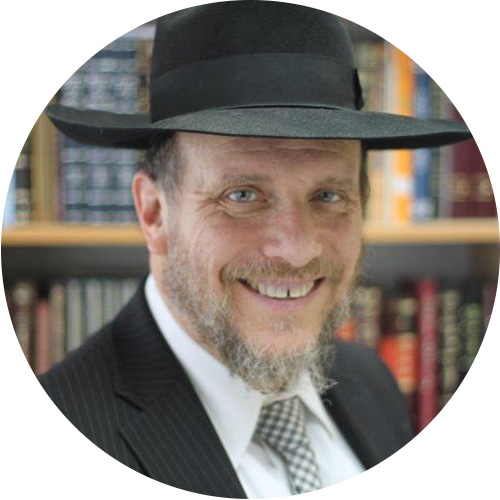“My Married Son Is Making a Bad Career Choice — Should I Set Him Straight?”

The answer to “At what age do we stop giving advice when it isn’t welcome?” becomes quite evident

Question
Our son is 24 years old. He is married with one child and lives in Lakewood. Recently, he’s been talking about going to law school and informed us that he has already signed up for an LSAT course. We raised our eyebrows. Our son is a bright boy, but has never been overly ambitious about academics.
We’ve since learned that several of his friends have gotten into top law schools, and our impression is that he is simply jealous, or caving to peer pressure. As far as we see it, pursuing this career path is a recipe for hurt, failure, and disappointment. Yet when we try suggesting this to our son, he refuses to hear it. Is there anything we can do to get him to change his mind?
Answer
There are two very serious dilemmas in this question.
- At what age do we stop giving advice when it isn’t welcome?
- Do we really know what our children are capable of based on past performance?
The source of the word advise is “avis,” which means opinion in Old French. When giving advice, it’s important to remember that our advice reflects our opinions. But other people have their own opinions, and changing those opinions is always difficult, most certainly when they pertain to their selves. What are the chances of someone changing your opinion regarding your ability to understand people?
The art of giving advice requires knowing how to deliver the message without the other person feeling you think your opinion is better than theirs. The difficulty with that is being humble enough to recognize that in spite of our confidence in our perception, the other person’s perspective has just as much value.
When a person gives unsolicited advice, especially when they’re in a position of authority, they’re essentially telling the recipient of the suggestion that they need to comply. I know better! You should accept my opinion! Unsurprisingly, this kind of advice often doesn’t go over well and remains unheeded.
When advice is taken to an art form, we humbly present an idea, sometimes by asking questions that help the person see the other side of the coin and sometimes by sharing experiences that raise questions.
Generally, when people ask for advice, they want to hear others’ opinions, because they are not yet sure what they think. On the other hand, when they receive unsolicited advice that challenges their position, they perceive their opinion or thought process as being contested and prepare to defend it.
While almost nobody wants you to change their mind, they may change their opinions of their own volition if there is a reason that makes sense to them. This means they will need to arrive at your conclusion “on their own.”
With this understanding, the answer to “At what age do we stop giving advice when it isn’t welcome?” becomes quite evident. As soon as a person has already made a decision and will continue to make decisions regardless of your opinions, it’s time to find a different approach.
Truthfully, we need to find another approach long before our opinions become unappreciated. Learning to create dialogue is one of the most important skills required for all human relationships, and certainly for the relationships with those whose lives we affect the most.
There is a second very important component in this discussion: Should we discourage our children from reaching for their dreams? Included in the question is whether past performance is the full indicator of future endeavors.
As a rebbi to hundreds of talmidim and principal/teacher to thousands of talmidos, I’ve observed countless times how students who were mediocre and less in high school and even in seminary went on to do top work in higher education and jobs. It’s become clear to me and many mechanchim and mechanchos with whom I’ve discussed this that we, our students, and their parents confuse lack of motivation with lack of ability more often than not. Students who “could not” suddenly became powerhouses of motivation followed by a display of enviable abilities.
Your son may have not done well in his younger years, because he wasn’t interested enough to put himself out there and utilize tools, time, and resources to be successful. Now that he’s facing life in a more mature and responsible way, he might be interested and ready to fully put his best foot forward.
It doesn’t make a difference if his motivation is driven by his friends’ successes or by his own wish to provide for his family. If he has a desire to succeed, you don’t want to discourage him from trying. Your compulsion to save himself from himself could well be motivated by your fear of his failing.
There are many situations in life where the only way for someone to know his abilities or limitations is to try. We’ve seen a boy with dyslexia become a talmid chacham. We’ve witnessed a girl with multiple learning disabilities get her doctorate. Chazal have taught us that there is no more powerful force in the world than ratzon. Our will connects with the Will of Hashem and can help us do anything!
If I may share my favorite poem of all time:
Somebody said that it couldn’t be done,
But, he with a chuckle replied
That “maybe it couldn’t,” but he would be one
Who wouldn’t say so till he’d tried.
So he buckled right in with the trace of a grin
On his face. If he worried he hid it.
He started to sing as he tackled the thing
That couldn’t be done, and he did it.
Somebody scoffed: “Oh, you’ll never do that;
At least no one has done it”;
But he took off his coat and he took off his hat,
And the first thing we knew he’d begun it.
With a lift of his chin and a bit of a grin,
Without any doubting or quiddit,
He started to sing as he tackled the thing
That couldn’t be done, and he did it.
There are thousands to tell you it cannot be done,
There are thousands to prophesy failure;
There are thousands to point out to you one by one,
The dangers that wait to assail you.
But just buckle it in with a bit of a grin,
Just take off your coat and go to it;
Just start to sing as you tackle the thing
That “couldn’t be done,” and you’ll do it.
Edgar Albert Guest, 1919
Rabbi Zecharya Greenwald is a world-renowned educator and lecturer and the author of Preparing your Child for Success (ArtScroll/Mesorah). He founded Darchei Shalom Educational Center, an alternative high school for boys at risk in Israel 33 years ago, and 23 years ago he founded Me’ohr Bais Yaakov Teacher’s Seminary in Jerusalem, where he currently serves as dean.
This column will appear monthly.
(Originally featured in Mishpacha, Issue 945)
Oops! We could not locate your form.







